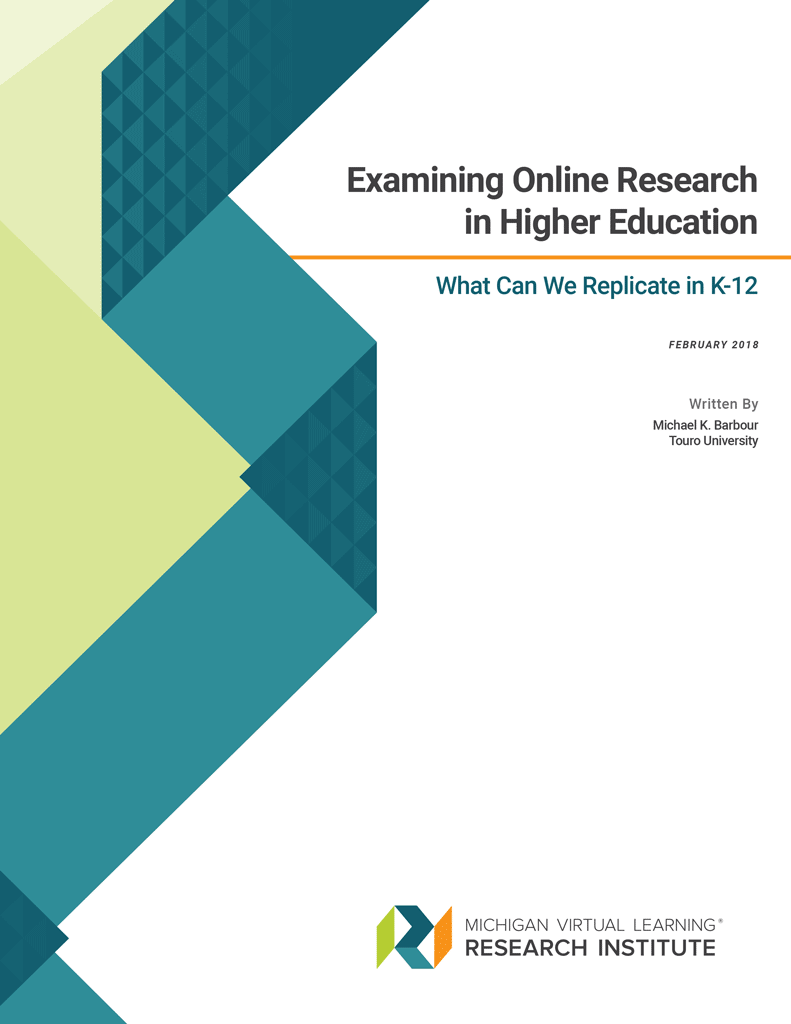Abstract
 One of the best ways for practitioners and scholars to understand what is already known in a field is to undertake a review of the existing literature. The existing literature related to K-12 distance, online and blended learning is still developing. What has been published is heavy on the practitioner experience – either the direct telling of the experience by the practitioner or through the use of researcher surveys designed to capture the perceptions of the practitioners’ experience. Further, the available research rarely makes use of validated instruments or established theoretical and conceptual frameworks to guide their studies. However, research into distance, online, and blended learning with adult populations has a much richer and longstanding history. This report seeks to describe a series of studies that have been conducted with adult populations that may be of particular interest to researchers and practitioners in the K-12 distance, online, and blended environments.
One of the best ways for practitioners and scholars to understand what is already known in a field is to undertake a review of the existing literature. The existing literature related to K-12 distance, online and blended learning is still developing. What has been published is heavy on the practitioner experience – either the direct telling of the experience by the practitioner or through the use of researcher surveys designed to capture the perceptions of the practitioners’ experience. Further, the available research rarely makes use of validated instruments or established theoretical and conceptual frameworks to guide their studies. However, research into distance, online, and blended learning with adult populations has a much richer and longstanding history. This report seeks to describe a series of studies that have been conducted with adult populations that may be of particular interest to researchers and practitioners in the K-12 distance, online, and blended environments.
Written By
- Michael K. Barbour – Touro University
What we already know
- One of the difficulties, at least in terms of the ability for this research to help guide the practice of K-12 distance, online, and blended learning, is that much of this research is contextually specific or methodologically limited.
- This is not to say that it is bad research, just that the lessons that we learn from these studies are often based on the perceptions of or are mainly applicable to those involved in that specific environment.
- However, there is a robust literature and research base in distance and online learning with adult populations and an increasingly growing body focused on blended learning.
What this report adds
- The report seeks to provide guidance for K-12 scholars in the research that has been done in distance, online, and blended learning with adult populations, particularly with respect to methodological issues.
- The report also explores promising practices for K-12 that have been shown to have success in adult contexts, with the caveat that there are differences in the adult learner and the child or adolescent learner.
Implications for practice and/or policy
- If research in the field is ever going to reach a point where it can truly guide the practice of K-12 distance, online, and blended learning without having to provide numerous caveats and qualifications, following in the footsteps of our colleagues who conduct research with adult populations will be required.
- Researchers need to ensure that their methodological techniques continue to become more sophisticated by using or adopting validated instruments.
- Researchers need to ground their studies in established theoretical and conceptual frameworks, such as the theory of transactional distance, the theory of social presence, and the Communities of Inquiry framework.